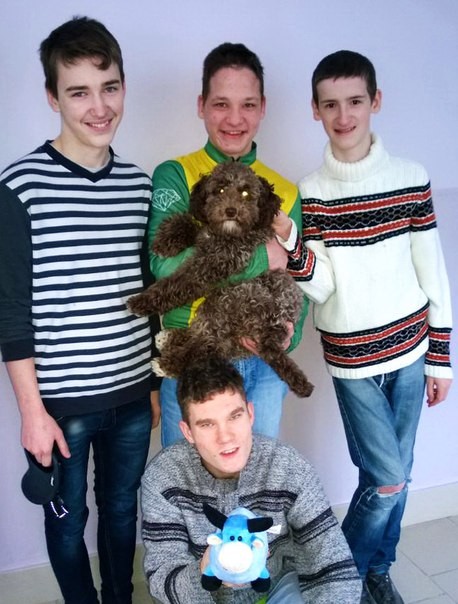
June 2016—A work/study tour to the United States has enabled a Belarusian psychologist to turn a vision to help neglected children in her home country into a reality, changing the course of thousands of young lives.
Katerina Kovrova traveled to the United States in 2006 as part of USAID’s Community Connections exchange program, which provides Belarusian professionals opportunities to gain practical experience from American counterparts. As a psychologist looking for modern techniques to help abused children, Kovrova learned about the U.S.-based Big Brother, Big Sister mentoring program that builds positive relationships between young people and older mentors.
She was impressed by the direct and measurable impact the program had on children’s lives, decreasing crime and drug use and increasing academic achievement. In her own practice, Kovrova observed that a child in trouble more often needed a friend than a psychologist.
When Kovrova returned home, she replicated the American experience in a program tailored to Belarusian children. She recruited psychology students to act as mentors and, with support from a U.S. Embassy alumni grant, she launched the Senior Friend project.
After a year, the 25 children participating in the project demonstrated positive results: 92 percent improved their communication skills; 85 percent reported that they developed hobbies or a strong interest in a sport, arts and crafts, or music; 80 percent showed improved self-confidence; and 75 percent improved their grades in school.
Inspired by the success of her project, Kovrova and her team refined the program’s methodological base and expanded it to Belarus’s state education agencies. Over the past five years, the program has been implemented in 40 education institutions, including schools, orphanages and boarding schools. The program has reached 386 children and has trained a cadre of 150 child protection specialists and 50 volunteers.
The Senior Friend program became the first step toward Kovrova’s ultimate dream to establish the Family Center, which opened in 2008. Today it is a creative center for children, providing various activities, including arts and crafts workshops, day camps for children and educational sessions for parents.
“When I said that I would open my own Family Center one day, everyone in the group gave me a skeptical look,” recalls Kovrova. “Well, it took me a while, but I quieted them in 2008.”
In 2015, Kovrova was invited to a second USAID Community Connections program, where she learned U.S. best practices in social entrepreneurship, which she fervently supported. After her return to Belarus, she sought to address other critical challenges and launched the Courage Box campaign, through which large businesses support children in hospitals and hospice. Since August 2015, the campaign has supported nearly 5,400 children.
Recently, the Family Center added a special therapist to its team. Chokoladka, a dog beloved by the center’s children, became a “staff volunteer” in December 2015. Chokoladka joins dozens of Senior Friend alumni who volunteer at the center today as trainers, counselors or social project assistants—returning the kindness and care provided to them when they were themselves in need.
The Community Connections program runs from 1998 to 2017.
LINKS
Follow @USAIDBelarus, on Facebook, on YouTube







Comment
Make a general inquiry or suggest an improvement.